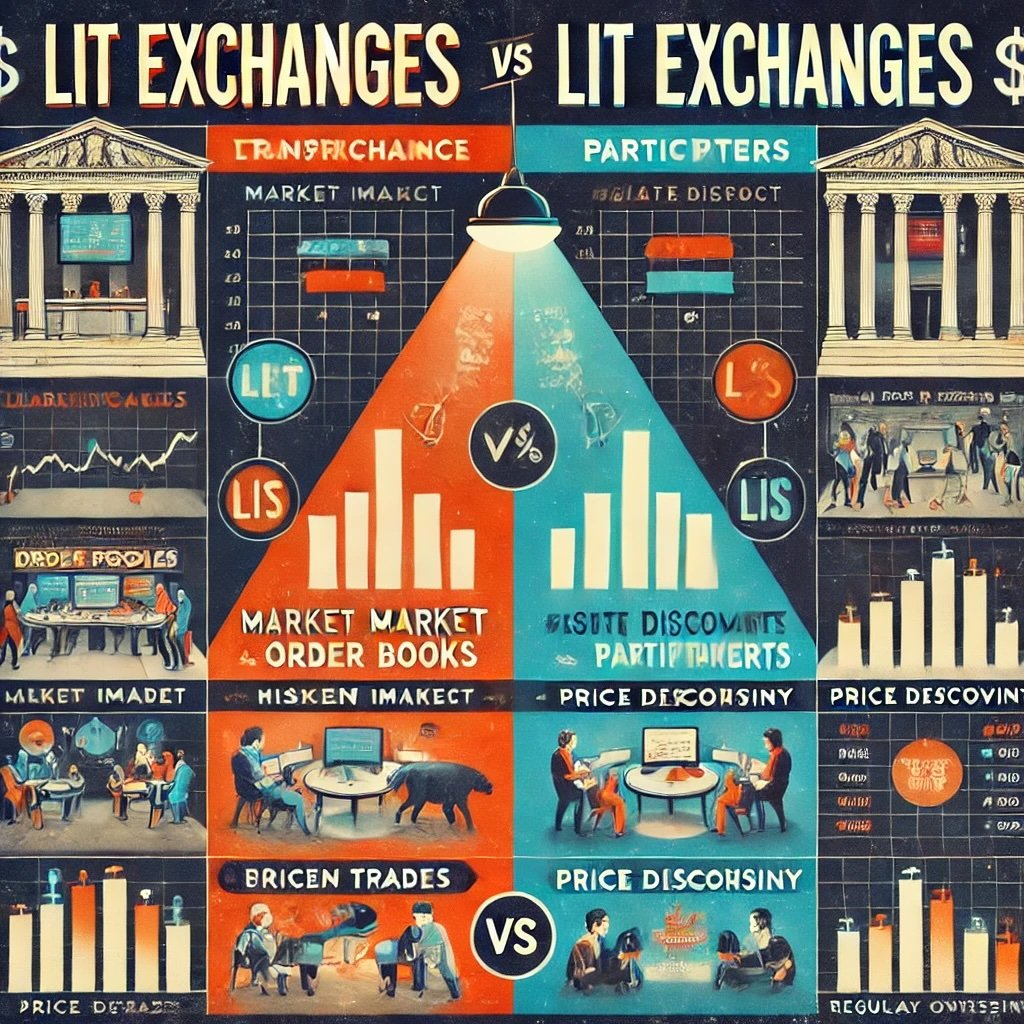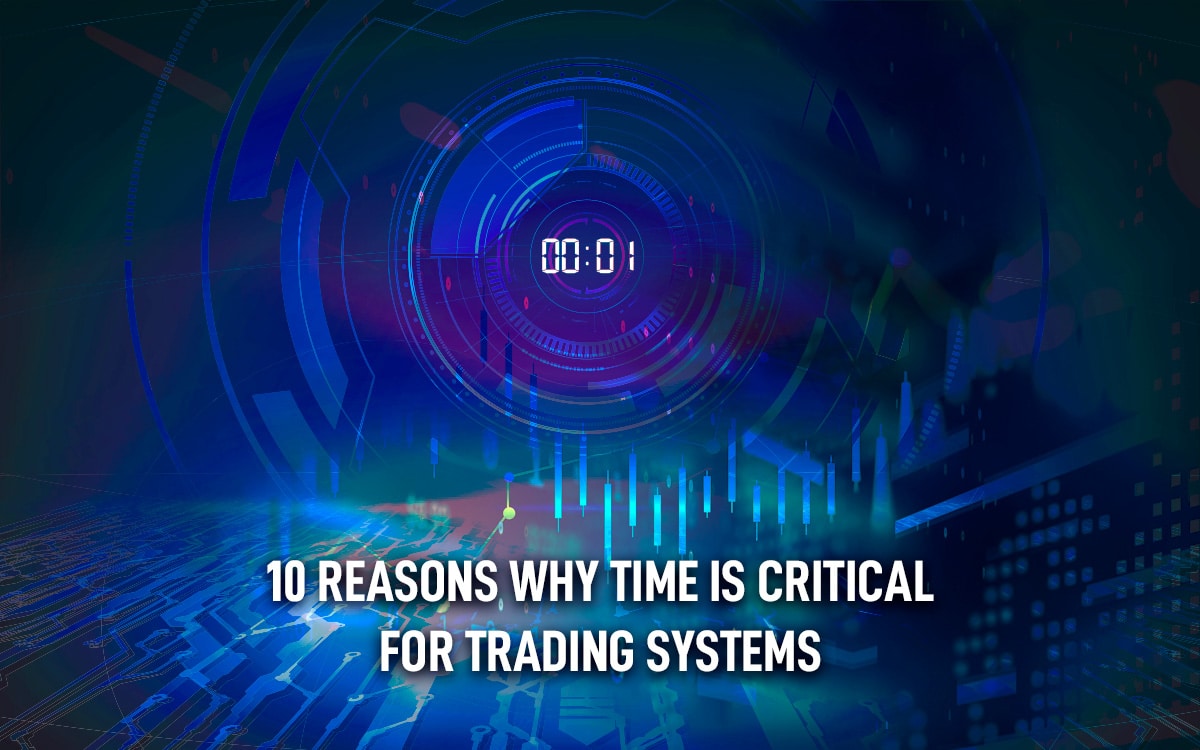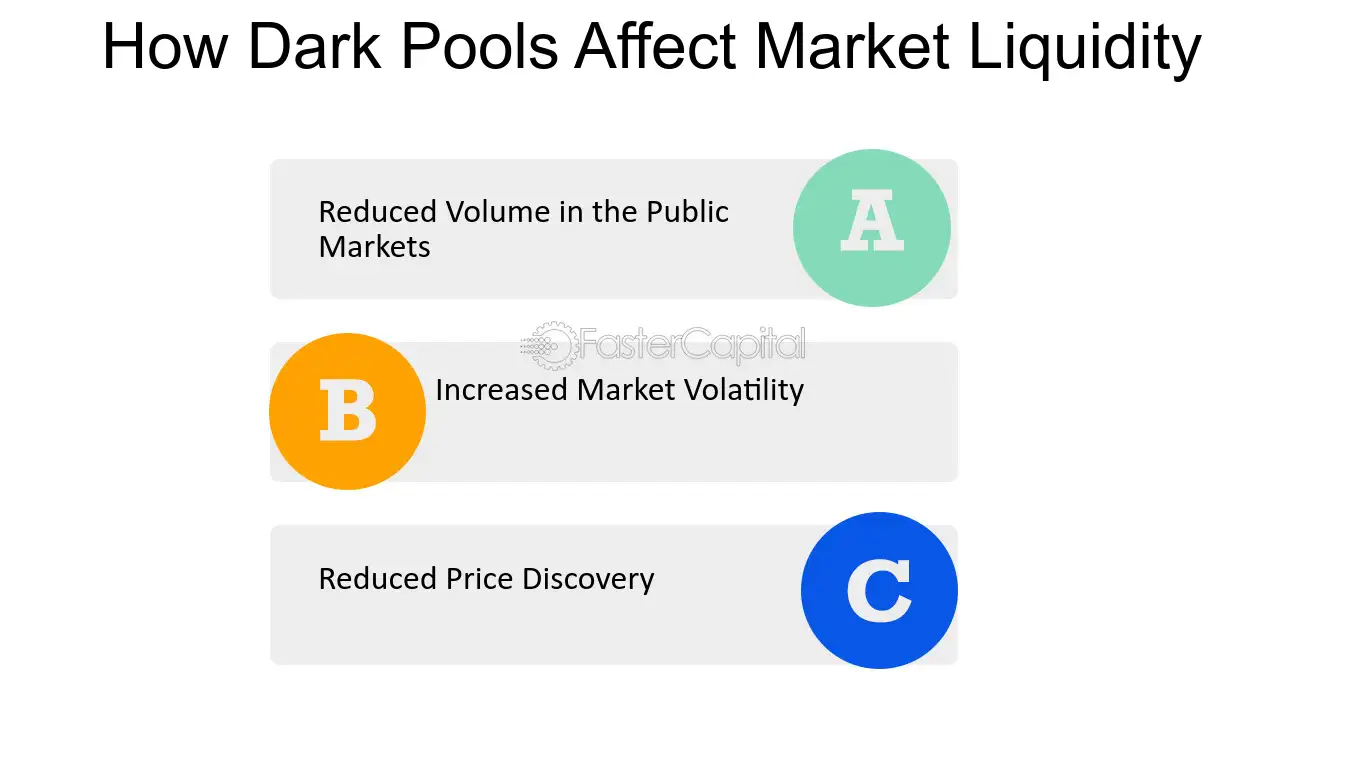Did you know that over 40% of all U.S. stock trades occur in dark pools, where traders can execute large orders away from the public eye? In this article, we delve into whether dark pools offer tangible advantages for day traders. We’ll explore their ability to help execute large orders discreetly, reduce market impact, and provide privacy for trading strategies. Additionally, we analyze their role in enhancing trade execution speed, potential cost benefits, and risks such as price transparency and market volatility. Join us as we uncover how dark pools stack up against traditional exchanges and their suitability for fast-paced day trading. At DayTradingBusiness, we aim to equip you with the knowledge to navigate these complex trading waters effectively.
Do Dark Pools Help Day Traders Execute Large Orders?
Dark pools don’t help day traders execute large orders because they’re designed for institutional investors to hide big trades, not for quick, small-scale trading. Day traders rely on transparent markets to react fast, and dark pools lack real-time visibility, making them unsuitable for their strategies.
Are Dark Pools Better Than Public Exchanges for Fast Trading?
Dark pools aren't ideal for fast trading or day trading because they lack transparency and quick access. Public exchanges provide real-time data, faster execution, and better liquidity for quick trades. Dark pools are better suited for large institutional investors avoiding market impact, not for rapid, short-term trading.
Can Dark Pools Reduce Market Impact for Day Traders?
Dark pools don’t typically benefit day traders because they’re designed for large institutional trades to avoid market impact. Day traders rely on public order books for quick, visible price movements; dark pools hide orders, making it hard to execute rapid trades without revealing intentions. Using dark pools can delay trade execution and increase uncertainty for day traders. So, dark pools don’t offer clear advantages for short-term traders seeking immediate market access.
Do Dark Pools Offer More Privacy for Day Trading Strategies?
Dark pools don’t offer significant privacy for day trading strategies. They mainly serve large institutional investors to hide big orders and avoid market impact. Day traders rely on real-time public data, which dark pools don’t provide. Using dark pools won’t give you better privacy or advantage, since their primary purpose isn’t for individual day trading.
Are Dark Pools Suitable for Short-Term Trading?
Dark pools are not ideal for short-term trading or day trading because they lack real-time transparency, leading to higher risks of price slippage and less visibility into order flow. They’re designed for large institutional trades, not quick, small-volume moves typical of day traders. Using dark pools for short-term strategies can result in unpredictable fills and increased transaction costs.
How Do Dark Pools Affect Price Transparency in Day Trading?

Dark pools reduce price transparency because they hide large trades from public order books. This can make it harder for day traders to see true market prices and liquidity, increasing uncertainty. While dark pools might offer advantages like less price impact for institutional traders, they generally limit the real-time information day traders rely on, potentially making quick decisions riskier.
Do Dark Pools Provide Better Price Opportunities for Day Traders?
No, dark pools don't provide better price opportunities for day traders. They’re private trading venues used by institutions to hide large orders, which can lead to less transparency and unpredictable prices. Day traders rely on real-time public data, and dark pools often lack the immediate visibility needed for quick, informed decisions. Using dark pools doesn’t give day traders better access to favorable prices; it mainly benefits large institutions avoiding market impact.
What Risks Do Dark Pools Pose to Day Traders?
Dark pools mainly pose risks to day traders by reducing transparency, making it harder to gauge true market prices and liquidity. They can cause sudden price swings when large hidden orders are revealed, leading to unpredictable moves. The lack of real-time data from dark pools means traders might base decisions on incomplete info, increasing the chance of slippage and unfavorable fills. Additionally, dark pools can be manipulated by large institutions, creating unfair advantages and market distortions that hurt individual traders.
Can Dark Pools Improve Trade Execution Speed?

Dark pools don't typically improve trade execution speed for day traders. They focus on discreet trading to reduce market impact, which can sometimes slow down order processing compared to public exchanges. If quick execution is your priority, traditional exchanges usually offer faster, more transparent fills.
Are Dark Pools Used by Day Traders for Arbitrage?
Dark pools are mainly used by institutional traders for large block trades to avoid market impact. Day traders typically don’t access dark pools for arbitrage because these venues lack transparency, making quick, small trades risky and less practical. Arbitrage relies on fast, visible price movements, which dark pools don’t provide. So, day traders generally avoid dark pools for arbitrage purposes.
Learn about Are Dark Pools Used in Day Trading Strategies?
How Do Dark Pools Impact Market Liquidity for Day Traders?
Dark pools don’t directly impact market liquidity for day traders because they’re private and don’t show up on public order books. This limits transparency, making it harder for day traders to gauge true supply and demand. While dark pools can reduce market impact for large orders, they don’t offer real-time liquidity or better execution for small, fast trades. Instead, they mainly benefit institutional investors, leaving day traders relying on public markets for quick, transparent liquidity.
Learn about How Do Dark Pools Impact Market Fairness?
Do Dark Pools Offer Any Cost Benefits for Day Trading?
Dark pools typically don’t offer cost benefits for day traders. They often have higher fees and less transparency, making quick, low-cost trades difficult. Day traders prefer lit exchanges with tighter spreads and immediate order execution, which dark pools usually don’t provide.
Learn about What Is the Future of Dark Pools in Day Trading?
Are Dark Pools Regulated to Protect Day Traders?
No, dark pools are not regulated to protect day traders. They are private trading venues primarily used by institutional investors to execute large orders quietly, which can put retail day traders at a disadvantage due to less transparency and potential information asymmetry.
Learn about Are Dark Pools Legal for Day Traders?
How Do Dark Pools Influence Market Volatility?

Dark pools reduce market volatility by allowing large traders to execute big orders privately, preventing sudden price swings. They hide trading activity, which stops large trades from impacting public prices and triggering volatility. For day traders, dark pools can mean less price manipulation and more stable markets, but they also limit transparency, making it harder to gauge true market conditions. Overall, dark pools can lower volatility but may create information gaps for active traders.
Learn about How Do Dark Pools Impact Market Fairness?
Can Dark Pools Help Avoid Front-Running?
Dark pools can help avoid front-running by hiding large orders from public view, preventing traders from exploiting known intentions. This secrecy reduces the risk of other traders jumping ahead of big trades, offering a layer of protection. However, dark pools mainly benefit institutional traders and might not give day traders a significant advantage due to limited access and transparency.
Do Dark Pools Provide Insights for Day Traders?
Dark pools don't typically provide direct insights for day traders since they are private trading venues. However, monitoring dark pool activity can hint at large institutional moves before they hit the public market. Some day traders use this info to anticipate potential price swings, but it's not a guaranteed advantage. Overall, dark pools are more useful for institutional traders than for small-scale, short-term day traders.
Learn about Are Dark Pools Legal for Day Traders?
Are There Disadvantages of Using Dark Pools for Day Trading?
Yes, dark pools can make it harder for day traders to see market depth and price movements, leading to less transparency. They often execute large trades quietly, which can cause sudden price shifts that disrupt short-term trading strategies. Additionally, the lack of public information may result in less accurate order execution and increased risk of getting unfavorable prices.
Learn about What Is the Future of Dark Pools in Day Trading?
How Do Dark Pools Compare to Traditional Exchanges for Day Traders?
Dark pools aren’t ideal for day traders because they lack transparency and real-time data, making quick decisions harder. Traditional exchanges provide instant access, visible order books, and price transparency, which are crucial for short-term trading. Dark pools are mainly used by institutional investors to execute large trades quietly, not for rapid, small trades typical of day trading. For day traders, the speed, transparency, and liquidity of traditional exchanges outweigh any potential stealth benefits dark pools offer.
Learn about Are Dark Pools Legal for Day Traders?
Conclusion about Do Dark Pools Offer Advantages for Day Traders?
In conclusion, dark pools present both advantages and challenges for day traders. They can facilitate large order execution, enhance privacy, and potentially improve trade execution speed. However, risks such as reduced price transparency and market volatility must be carefully considered. Day traders should weigh these factors against their trading strategies and objectives. For comprehensive insights and guidance on navigating these complexities, DayTradingBusiness is here to support your trading journey.
Learn about Are Dark Pools Legal for Day Traders?